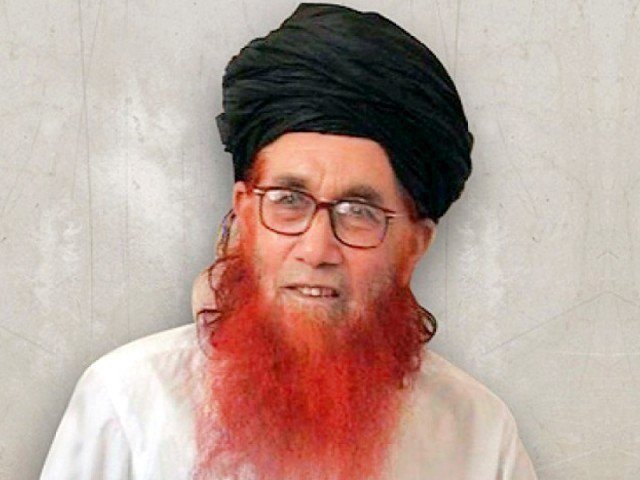
The number of loopholes that came to the fore during judicial proceedings of sedition cases registered against detained cleric Maulana Sufi Muhammad have posed questions over the investigation that was conducted.
The shortcomings resulted in the transfer of Grassy Ground speech case and Timergara Rest House speech case from the anti-terrorism court to lower courts.
Anti-government speech
The chief of the outlawed Tehreek-e-Nifaz-e-Shariat-e-Mohammadi (TNSM) has a history of trials. He was booked by Saidu Sharif police on July 30, 2009 for delivering an anti-government speech at Grassy Ground, Swat. The FIR was registered under Sections 7 and 11(f) of the Anti-terrorism Act 1997 and Sections 506, 120(b), 121(a), 148 and 149 of the Pakistan Penal Code.
During the hearing, Muhammad’s counsel Adil Majeed told the court prior to 2008 his client was behind bars at DI Khan Central Prison for over a dozen terrorism cases. He added Sufi Muhammad was released by the then provincial government under notification SO (JUDL) HD/8-116/08 issued on April 21, 2008 and shifted to Hayatabad Medical Complex, Peshawar for treatment. The prosecution agreed cases were withdrawn against the TNSM chief.
The seven-page order issued by the anti-terrorism camp court states the FIR was registered over three months after the actual incident occurred. Authored by judge Abdul Rauf Khan, the judgment states the speech was delivered on April 19, 2009 wherein Sufi Muhammad declared the state structure of Pakistan ‘un-Islamic’.
The order, a copy of which is available with The Express Tribune, states during the entire proceeding, not a single recording of the speech or its transcript was produced by the prosecution. Furthermore, the contents of police roznamcha (daily diary) No11, dated April 19, 2009, confirms that no untoward occurrence was witnessed during the public meeting in question.
“In view of the record, it is established that the then government had given a free hand to Maulana Sufi Muhammad to hold the gathering in question, after the two parties signed a peace agreement,” the court observed. “I arrive at the conclusion that the case does not fall under the definition of scheduled offences,” the judge wrote, ordering the transfer of the case to a lower court under Section 23 of the Anti-terrorism Act.
State’s weakness?
The arguments of both the prosecution and the defendant point towards the State’s decision of allowing Sufi Muhammad a free reign in Malakand in order to establish its writ and control the outlawed Tehreek-e-Taliban Pakistan back in 2009. The decision was although seen as a need of that time but it has marred attempts to convict the detained cleric.
Big offences
The TNSM chief was arrested in 13 different cases. The proceedings were initially held in Timergara but were later transferred to Peshawar Central Prison where a camp court was set up to try the cleric.
Published in The Express Tribune, May 3rd, 2015.


1672385156-0/Andrew-Tate-(1)1672385156-0-165x106.webp)








COMMENTS
Comments are moderated and generally will be posted if they are on-topic and not abusive.
For more information, please see our Comments FAQ